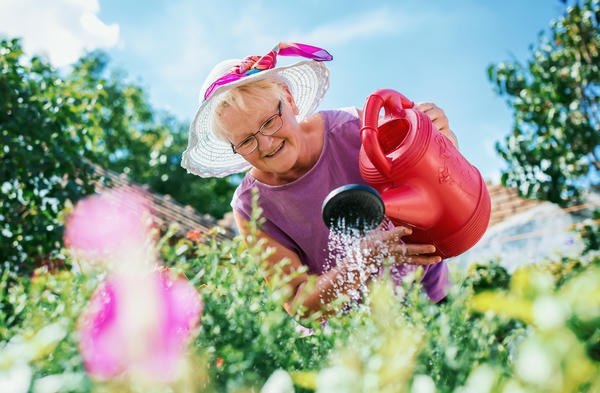The Journey of Aging: Embracing Wellness and Vitality
The passage of time is a remarkable journey, painted with wisdom, experience, and the subtle nuances of personal growth. As we navigate the intricate landscape of aging, we are presented with a profound opportunity to redefine what it means to grow older—not as a period of decline, but as a chapter of continued vibrancy, purpose, and well-being. Imagine a world where our elderly loved ones don’t just survive, but truly thrive, their golden years illuminated by holistic health practices that nurture body, mind, and spirit.
Consider the story of Margaret, a 75-year-old retired teacher whose life transformed when she embraced a holistic approach to her health. Once resigned to the limitations she believed came with age, Margaret discovered a renewed sense of vitality through personalized nutrition, mindful meditation, and gentle physical activities. Her journey illustrates the transformative power of holistic health care—a comprehensive approach that sees aging not as a challenge to overcome, but as an opportunity to flourish.
Understanding Holistic Health: More Than Just Treating Symptoms
The Philosophical Foundation of Holistic Wellness
Holistic health care represents a revolutionary approach to well-being that transcends traditional medical paradigms. It is not merely about addressing isolated symptoms or treating diseases in isolation, but about understanding the intricate interconnections between physical health, emotional well-being, mental clarity, and spiritual harmony. This approach recognizes each individual as a unique ecosystem, where every aspect of life influences overall health and vitality.
At its core, holistic health embraces a fundamental truth: human beings are complex, multidimensional entities whose well-being cannot be reduced to a simple set of medical diagnostics. Instead, it requires a compassionate, comprehensive understanding that considers an individual’s lifestyle, environment, emotional state, and personal history.
Pillars of Holistic Health for Seniors
Nutrition: Fuel for Vibrant Living
Nutrition emerges as a critical cornerstone of holistic health for the aging population. Far beyond simple sustenance, food becomes a powerful tool for preventing diseases, maintaining cognitive function, and supporting overall vitality. For seniors, a well-crafted nutritional approach is not about restrictive diets but about embracing foods that nourish and protect.
The Mediterranean diet offers an exemplary model of holistic nutrition. Rich in fresh fruits, vegetables, whole grains, lean proteins, and healthy fats, this dietary approach has been scientifically proven to support cardiovascular health, reduce inflammation, and potentially slow cognitive decline. Superfoods like blueberries, rich in antioxidants, and fatty fish packed with omega-3s become more than just ingredients—they are potent allies in the journey of healthy aging.
Mindfulness and Mental Wellness: Cultivating Inner Peace
In the realm of holistic health, mental and emotional well-being are just as crucial as physical health. Mindfulness and meditation practices offer powerful tools for seniors to manage stress, reduce anxiety, and maintain cognitive sharpness. These practices are not mystical or complicated but simple, accessible techniques that can be integrated into daily life.
Imagine a group of seniors gathering for a morning meditation session, their breaths synchronized, their minds gently focused on the present moment. Research has consistently shown that regular meditation can help reduce symptoms of depression, improve sleep quality, and even potentially slow age-related cognitive decline.
Physical Activity: Movement as Medicine
Physical activity takes on a nuanced meaning in holistic health for seniors. It is not about intense workouts or competitive sports, but about finding joyful, sustainable ways to keep the body moving and engaged. Gentle practices like yoga, tai chi, and swimming offer multiple benefits—improving flexibility, enhancing balance, supporting cardiovascular health, and providing opportunities for social connection.
The key is personalization. What works for one senior might not work for another. A 70-year-old former dancer might find joy in modified ballet-inspired movements, while another might prefer walking groups or adaptive water aerobics. The goal is not perfection, but consistent, enjoyable movement that brings both physical and emotional satisfaction.
Complementary Therapies: Expanding the Healing Landscape
Complementary therapies represent another critical dimension of holistic health care. Acupuncture, massage therapy, chiropractic care, and other alternative treatments offer nuanced approaches to pain management, stress reduction, and overall well-being. These therapies do not replace traditional medical care but complement it, providing additional avenues for healing and comfort.
Implementing Holistic Health: A Collaborative Approach
Creating Personalized Care Ecosystems
Successful holistic health care for seniors requires a collaborative, individualized approach. Healthcare providers, family members, caregivers, and the seniors themselves must work together to create comprehensive care plans that honor individual preferences, capabilities, and goals.
This means developing dynamic, flexible care strategies that can adapt as an individual’s needs change. Regular assessments, open communication, and a willingness to explore new approaches become fundamental to this process.
Education and Empowerment
Education plays a pivotal role in implementing holistic health practices. Caregivers and family members need access to resources and training that help them understand and support holistic wellness strategies. Workshops, support groups, and accessible informational resources can bridge knowledge gaps and empower individuals to make informed health decisions.
Overcoming Challenges and Embracing Possibilities
The path to holistic health is not without challenges. Financial constraints, limited access to resources, and ingrained healthcare paradigms can present significant obstacles. However, the growing body of research supporting holistic approaches continues to break down these barriers, encouraging more inclusive, comprehensive models of senior care.
Conclusion: A New Vision of Aging
Holistic health care offers more than a set of practices—it presents a transformative vision of aging. It invites us to see our later years not as a period of inevitable decline, but as a rich, vibrant chapter filled with potential for growth, learning, and profound well-being.
As our global population continues to age, embracing holistic health approaches becomes not just a choice, but a necessity. By nurturing the complex, interconnected nature of human health, we can help our seniors not just survive, but truly thrive—celebrating each moment with joy, dignity, and vitality.
The journey of aging is a beautiful, intricate dance. And with holistic health as our guide, we can ensure that this dance continues to be graceful, meaningful, and full of wonder.






To the comforhome.ca admin, You always provide great insights.